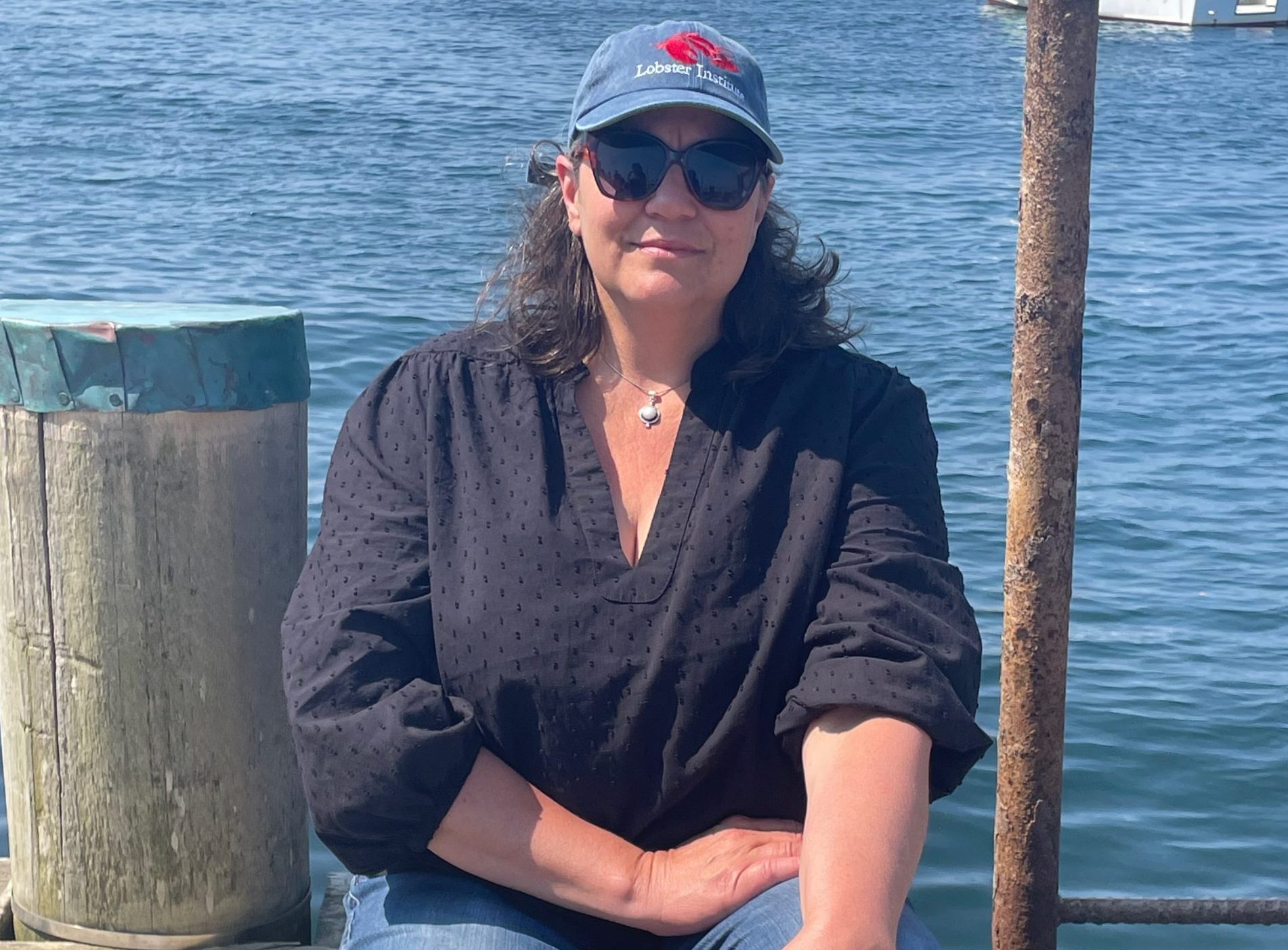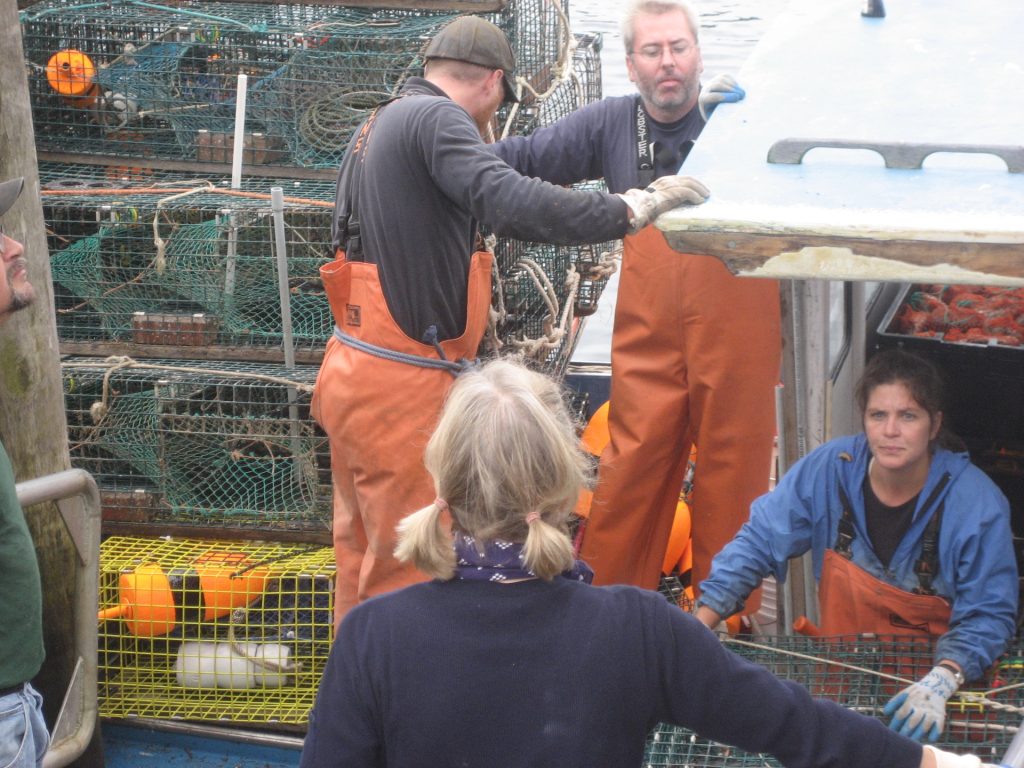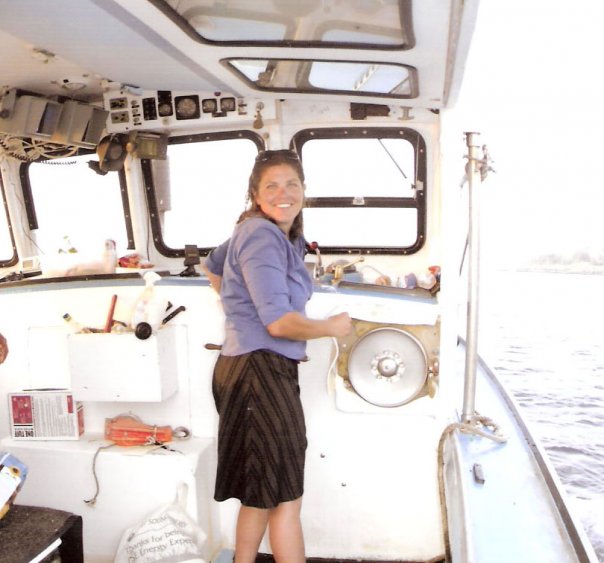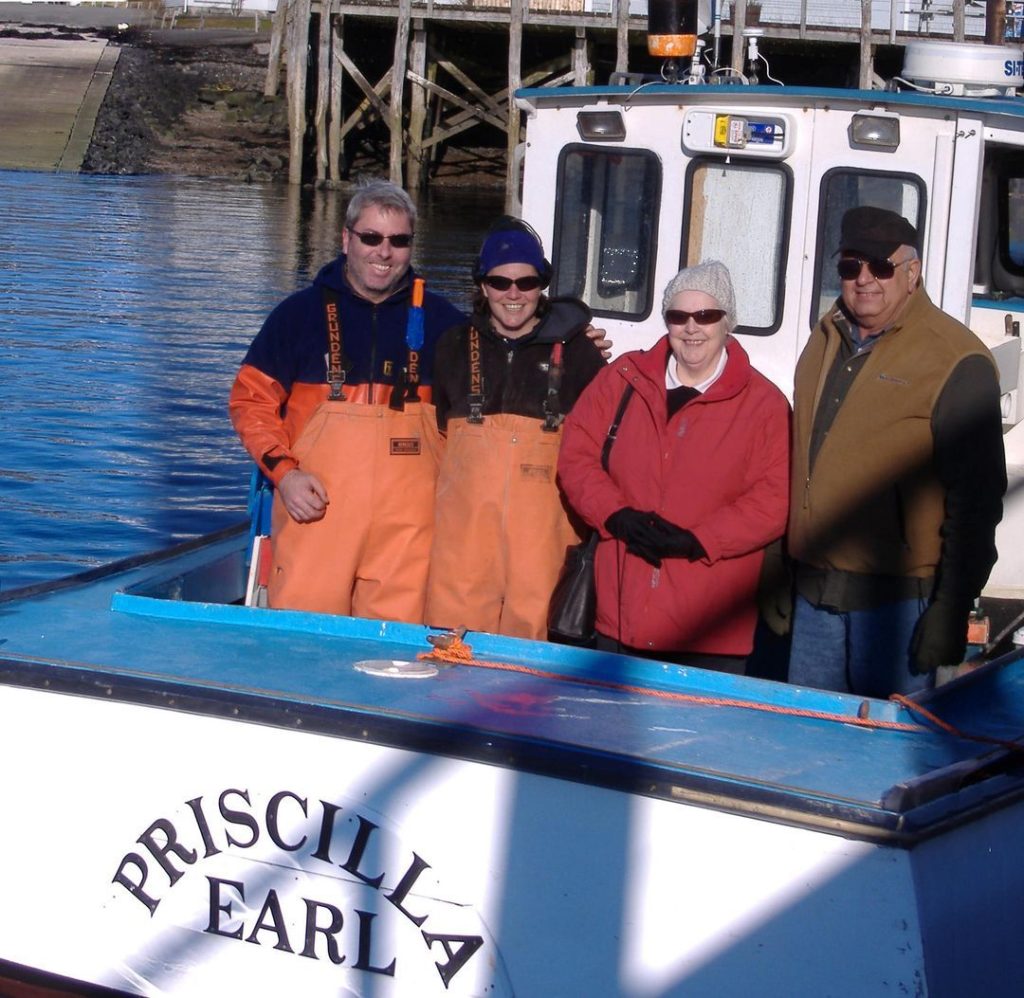
Chris Cash: One heck of a resume that ended up making sense
When I told my parents I was moving back to Monhegan for the third time to pursue my lobster license, my dad just shook his head and uttered what he had many times before, “you have one heck of a resume, kid.” He wasn’t wrong. After graduating from UMaine, my now husband and I set off on a series of adventures: crewing a sailboat to Antigua, driving across the United States, and trying our hand at sterning on lobster boats for a winter on Monhegan before pursuing graduate school. One winter turned into 6 years, and we never did make it to graduate school. Resume builders included tuna-fishing, ground-fishing, trail work, pumping septic tanks, pilot-boat mate, and any and every hotel position ever created.
Ultimately, we felt we should move inshore and seek jobs that would use our degrees. Initially it was still the lobster industry that supported us – working at a wharf and driving trucks loaded with lobsters to Boston and Canada. But amazingly, I secured my first “professional” job due to my island experience! For three years I was fortunate to have worked several roles at the Island Institute, including Fellowship Coordinator. Alas, we pretty quickly felt the draw to move back to the island. I felt as if I would be unhappy unless I was commercial fishing.


Thanks to a forward-thinking boss and mentor who was an early proponent of remote work (unheard of in 2004) and the Monhegan Island Conservation Zone’s six-month winter fishery, I was able to blend fishing with non-profit work. Over the next ten years, I completed the apprenticeship program, bought a boat, participated in vessel-oriented collaborative research projects, renovated a house, worked half-time for the Institute for Broadening Participation as the Outreach Director, welcomed a daughter (note – fishing until six months pregnant is about one month too long), captained a boat for eight seasons, and settled into the wonderfully complicated world of remote island living. Injury changed all of this.
While gaffing a buoy, hauling against the tide, instead of merely dropping it and coming back around to haul it properly, in my determination to get those traps hauled, I blew out the ligament in my wrist and ended my fishing career. One impatient action put in motion the need to move inshore again and leave the island where we assumed we would live forever.
Fast forward six years, and once again settled, but still not feeling I had found my career niche, I came across the advertisement for the Assistant Director of UMaine’s Lobster Institute. After reading the description a couple of times, I was stunned. It was as though the job description was written for me!
- Familiarity and experience working with fishing communities and industries – check
- Familiarity with the workings of a non-profit organization – check
- Familiarity and experience working with the coastal fishing communities of New England or Atlantic Canada – check
- Prior experience and interest in working with diverse organizations – check
I am forever grateful the hiring committee agreed, and the job became mine. Three years later, I was named Executive Director and given the opportunity to apply my experience working aboard boats, on wharves, and living in fishing communities to support the lobster industry.
While my path from UMaine undergraduate to leader of a distinguished UMaine Center for innovation and outreach was not a straight line, I feel every turn in my career helped foster a unique skill set to prepare me for my current role. As my dad said, I have one heck of a resume!

Current pressing and long-term issues the Lobster Institute is working to support through the following projects and meetings:
- Working with students and engaging in collaborative industry-science partnerships through the Environmental Monitors on Lobster Traps and Large Trawlers (eMOLT) and Deepwater Lobster Settlement projects.
- eMOLT uses cutting-edge, low-cost sensors attached to fishing gear and satellite technology to monitor bottom water temperatures, water column profiles, ocean currents, and dissolved oxygen on fishing grounds to provide near real-time environmental information to industry members and stakeholders.
- The deepwater lobster settlement project evaluates the relationship between bottom temperature gradients and the distribution of newly settled and older juvenile lobsters along the Maine coast using vessel-deployed lobster postlarval collectors.
- The Maine Lobster Knowledge Trust is an industry-owned organization formed through a collaboration between the Maine Lobstermen’s Association, the Lobster Institute, and the Fisheries Knowledge Trust (established by RODA—Responsible Offshore Development Alliance) to crowdsource data from plotters to help address urgent regulatory issues like management closures that threaten the lobster fishery.
- Navigating the New Arctic Lobster Network is an NSF-funded project led by UMaine and a team of 18 researchers from the Gulf of Maine Research Institute, Columbia University, Florida State University, and Memorial University of Newfoundland. The project investigates how climate-induced Arctic change alters lobster abundance and distribution from New England to Newfoundland.
- January 28-30, 2025, we will convene the 20th annual U.S.-Canada Lobster Town meeting in Bar Harbor, Maine. This unique event brings together a diverse array of stakeholders, including fishermen, scientists, policymakers, managers, and association representatives from the East Coast of the United States and Canada. Together, participants converge to deliberate on the state of Homarus Americanus and the factors shaping the fishery. Town Meeting alternates annually between Canada and the U.S.
